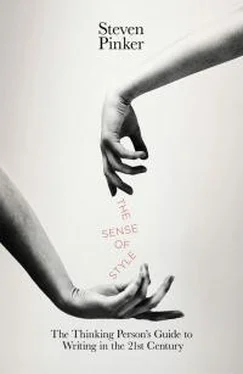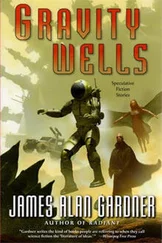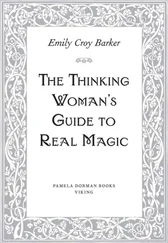This does not mean that infinitives should always be split. When the adverbial modifier is long and heavy, or when it contains the most important information in a sentence, it should be moved to the end, just like any other heavy or newsworthy phrase:
Flynn wanted to
more definitively
identify the source of the rising IQ scores.
Flynn wanted to identify the source of the rising IQ scores
more definitively
.
Scholars today are confronted with the problem of how to
non-arbitrarily
interpret the Qur’an.
Scholars today are confronted with the problem of how to interpret the Qur’an
non-arbitrarily
.
Indeed, it’s a good habit to at least consider moving an adverb to the end of the verb phrase. If the adverb conveys important information, it belongs there; if it doesn’t (such as really, just, actually, and other hedges), it might be a verbal fluffball that is best omitted altogether. And since there are benighted sticklers out there who will mistakenly accuse you of making an error when you split an infinitive, you might as well not ask for trouble if it makes no difference to the sentence anyway.
Finally, in many cases a quantifier naturally floats leftward away from the verb, unsplitting the infinitive, as in the examples on the right:
It seems monstrous
to even suggest
the possibility.
It seems monstrous
even to suggest
the possibility.
Is it better
to never have
been born?
Is it better
never to have
been born?
Statesmen are not called upon
to only settle
easy questions.
Statesmen are not called upon
only to settle
easy questions.
28
I find it hard to specify when
to not split
an infinitive.
I find it hard to specify when
not to split
an infinitive.
The unsplit versions sound more elegant to me, though I can’t be sure that my ears haven’t been contaminated by a habit of cravenly unsplitting infinitives to avoid spitballs from the Gotcha! Gang.
subjunctive mood and irrealis were .For several hundred years commentators on the English language have been predicting, lamenting, or celebrating the imminent extinction of the subjunctive mood. But here we are in the twenty-first century and it refuses to die, at least in writing. To appreciate this, one has to get straight what the subjunctive is, because most people, including traditional grammarians, are confused about it.
There is no distinctive subjunctive form in English; the construction just uses the unmarked form of the verb, such as live, come, and be . This makes subjunctives hard to spot: they are noticeable only when the verb has a third-person singular subject (in which case it ordinarily takes the suffix – s, as in lives and comes ) or when the verb is to be (which ordinarily shape-shifts to am, is, or are ). Subjunctives can be sighted in a few clichés that have come down to us from a time in which the form was more common in English:
So be it; Be that as it may; Far be it from me; If need be.
Long live our noble queen.
Heaven forbid.
Suffice it to say.
Come what may.
But otherwise the subjunctive is found only in subordinate clauses, generally with mandative verbs and adjectives, which indicate that something is demanded or required: 29
I insist that she be kept in the loop.
It’s essential that he see a draft of the speech before it is given.
We must cooperate in order that the system operate efficiently.
Subjunctives also turn up with certain prepositions and subordinators that specify hypothetical situations:
Bridget was racked with anxiety lest her plagiarism become known.
He dared not light a candle for fear that it be spotted by some prowling savage.
Dwight decided he would post every review on his Web site, whether it be good or bad.
Some of the examples are a bit formal and can be replaced by the indicative, such as It’s essential that he sees a draft and whether it is good or bad. But many subjunctives can be found in everyday writing and speech, such as I would stress that people just be aware of the danger, showing that reports of the death of the subjunctive are greatly exaggerated.
Traditional grammarians get tripped up by the verb be because they have to squeeze two different forms, be and were (as in If I were free ), into a single slot called “subjunctive.” Sometimes they call be the “present subjunctive” and were the “past subjunctive,” but in reality there’s no difference in tense between them. Rather, the two belong to different moods: whether he be rich or poor is subjunctive; If I were a rich man is irrealis (“not real”). The irrealis mood is found in many languages, where it expresses situations that are not known to have happened, including hypotheticals, imperatives, and questions. In English it exists only in the form were, where it conveys factual remoteness: an irrealis proposition is not just hypothetical (the speaker does not know whether it is true or false) but counterfactual (the speaker believes it’s false). Tevye the Milkman was emphatically not a rich man, nor were Tim Hardin, Bobby Darin, Johnny Cash, or Robert Plant (all of whom sang “If I Were a Carpenter”) in any doubt as to whether they were carpenters. Counterfactual, by the way, need not mean outlandish—one can say If she were half an inch taller, that dress would be perfect— it just means “known to be not the case.”
So what’s the difference between the past-tense was, in those contexts in which it has the meaning of factual remoteness, and the irrealis were, which also has the meaning of factual remoteness? The obvious difference is the level of formality: irrealis I wish I were younger is fancier than past-tense I wish I was younger. Also, in careful writing, were conveys a somewhat stronger sense of remoteness than was does, implying that the scenario is contrary to fact: If he were in love with her, he’d propose accuses him of not being in love; If he was in love with her, he’d propose leaves the door open a crack, and the present-tense open conditional If he is in love with her, he’ll propose doesn’t commit the writer either way.
Some writers, dimly sensing that were is posher, hypercorrect themselves and use it with open possibilities, such as He looked at me as if he suspected I were cheating on him and If he were surprised, he didn’t show it. 30In both cases, was is appropriate.
than and as . Is anything wrong with the sentences on the left?
Rose is smarter than him.
Rose is smarter than he.
George went to the same school as me.
George went to the same school as I.
Many students are taught that they are ungrammatical, because than and as are conjunctions (which precede clauses), not prepositions (which precede noun phrases). The material that follows them must be a clause, albeit an elliptical clause, from which the predicate has been amputated: the full versions are Rose is smarter than he is and George went to the same school as I did. Since the noun phrases coming after than and as are the subjects of the truncated clauses, they must be in nominative case: he and I .
But if you squirm at the thought of using the “correct” versions on the right because they sound insufferably fussy, you have grammar and history on your side. Like the words before and like, which we examined earlier, the words than and as are not conjunctions in the first place but prepositions that take a clause as a complement. 31The only question is whether they may also take a noun phrase as a complement. Several centuries of great writers—Milton, Shakespeare, Pope, Swift, Johnson, Austen, Thurber, Faulkner, Baldwin—have voted with their pens, and the answer is yes. The difference is just one of style: than I is more suited to formal writing, than me to writing that is closer to speech.
Читать дальше












